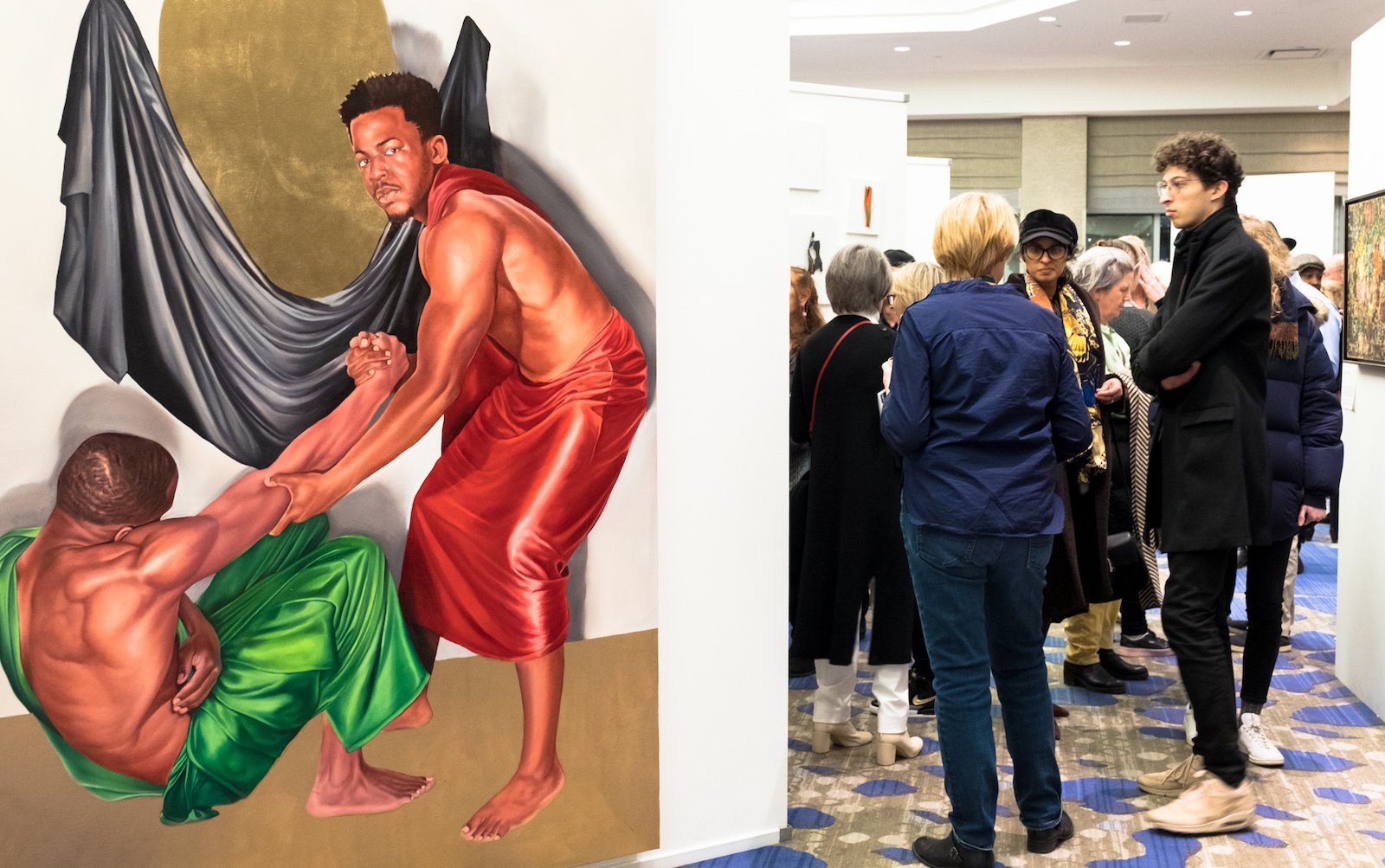
The culture-minded residents of Jersey City, New Jersey, have approved a new tax to support arts and artists in their city.
Roughly 64 percent of Jersey Cityans (the final figure is pending the end of ballot-counting) voted for the new measure, which will establish an arts and culture trust fund. The fund is expected to generate between $1 million and $2 million a year.
According to Robinson Holloway, who advocated for the tax and is director of the nonprofit ArtFair 14C and former chair of the Jersey City Arts Council, grants will be managed by a committee whose members will be appointed by the mayor and the city council. The arts community will be represented by a member put forth by the Jersey City Arts Council.
The funds will come from a new tax on property owners, of up to two cents per $100 of assessed value per year. A homeowner with a property assessed at $500,000, for example, would pay about $25 a year; the holder of a house assessed at $1 million would be taxed $50.
“This should slam the door on anyone thinking that the arts is an extra, a bonus, the first thing that should be cut,” Holloway told Artnet News by phone Thursday morning. “Our voters, during economic hard times and a pandemic and the largest election in a century, said, ‘Raise our taxes!’”
Because no such legislation can be passed at the municipal level without being passed by the state first, the new tax is supported by state legislation signed by Governor Phil Murphy in January, potentially setting the stage for other cities to do likewise.
“We’re hoping a whole lot of municipalities will follow,” Holloway said. “It’s exciting to think about what this could do to make Jersey City a more vibrant place to live. To have that level of support when people are worried about dying and losing their jobs and their homes is humbling.”
Jersey City Mayor Steven Fulop shares her optimism.
“As the first in New Jersey to implement a sustainable funding model to support our growing arts community, we fully expect to serve as an example for others around the state,” Fulop told Artnet News in an email via a spokesperson.
“After years of lobbying state legislators for this, it’s very exciting that the voters overwhelmingly support funding for the arts, which will have greater impacts on the overall community—from attracting new businesses to boosting property values, to expanding educational opportunities, and everything in between,” Funlop added.
Placing the money in a trust fund will protect it from the vagaries of annual budgeting, in which culture is often the first thing to be cut. But much remains to be seen about how the funds will be controlled, and even who will hold the purse strings.
“I was told that those things don’t get decided until after it passes, but it’s too late then,” Jersey City artist Jerome China said in a phone interview. “They should have been looking at people and putting those people out front who will write the guidelines and handle the money. In the end, I just hope there’s some transparency in how the process works.”
The state’s Republican Party, however, urged a vote against the measure on its Facebook page, calling it “an excuse to raise your property taxes pure and simple.”
With a population of a 250,000, Jersey City is the second largest city in the state.